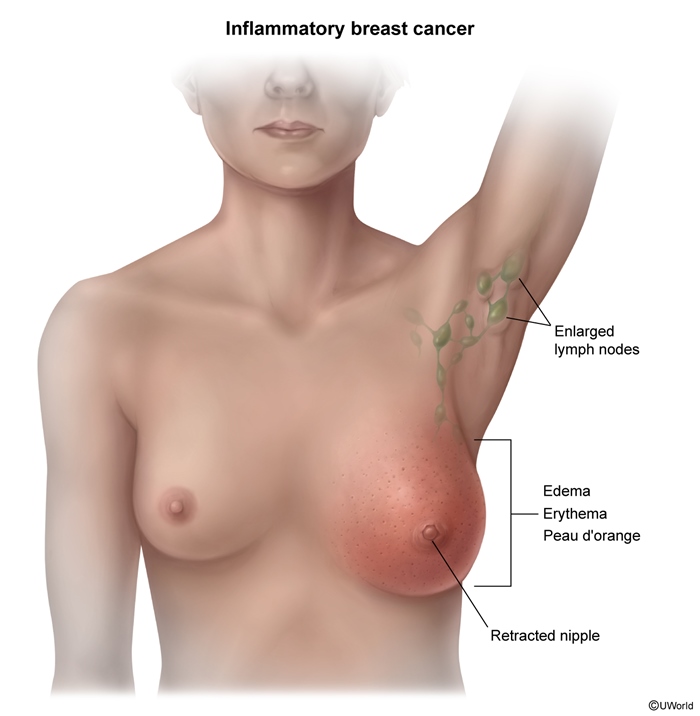Inflammatory Breast Cancer
Article Sections
Introduction
Inflammatory breast cancer is a rare, aggressive form of breast cancer with a rapid onset. Patients typically experience unilateral breast pain and diffuse erythema, edema, and warmth of the overlying skin, which produces a classic peau d'orange appearance (Figure 1).
Pathogenesis and risk factors
The term "inflammatory" breast cancer is a misnomer because the cancer's characteristic skin findings are not caused by inflammation.
Inflammatory breast cancer is classically due to the invasion of tumor cells into the dermal lymphovascular spaces. Obstruction of the dermal lymphatics causes severe cutaneous edema. As a result, the breast becomes firm, erythematous, and coarsely pitted like an orange peel (peau d'orange), resulting in the inflammatory appearance.
Inflammatory breast cancer tends to present at an earlier age than other forms of breast cancer, likely due to its early invasion of the lymphatic system and other aggressive attributes: It is highly angiogenic (ie, rapid tumor growth) and angioinvasive (ie, hematogeneous spread). Metastasis occurs within months and is present in up to 20% of newly diagnosed patients.
Continue Learning with UWorld
Get the full Inflammatory Breast Cancer article plus rich visuals, real-world cases, and in-depth insights from medical experts, all available through the UWorld Medical Library.
Unlock Full AccessFigures
